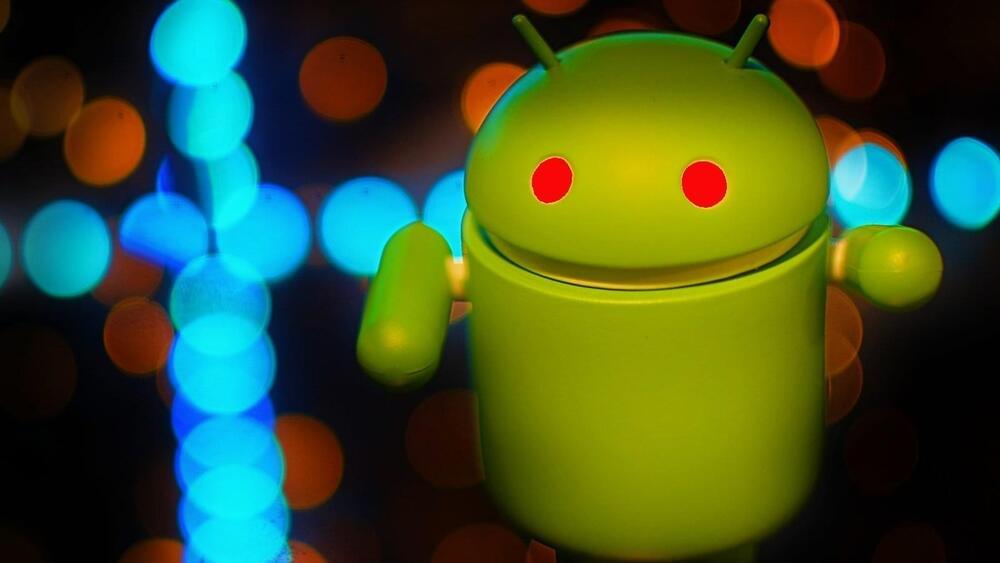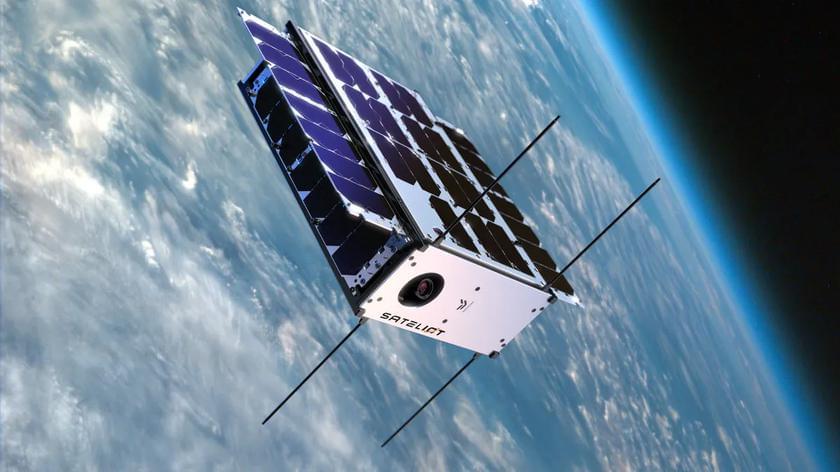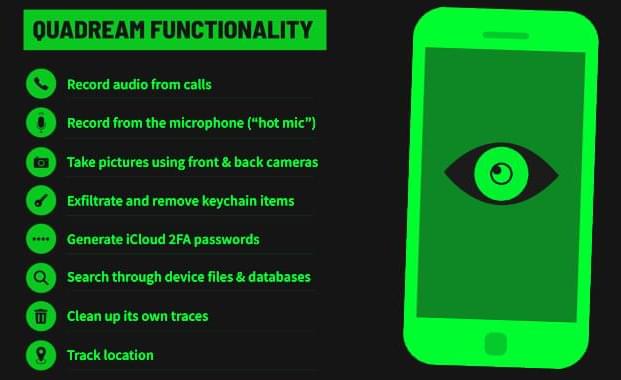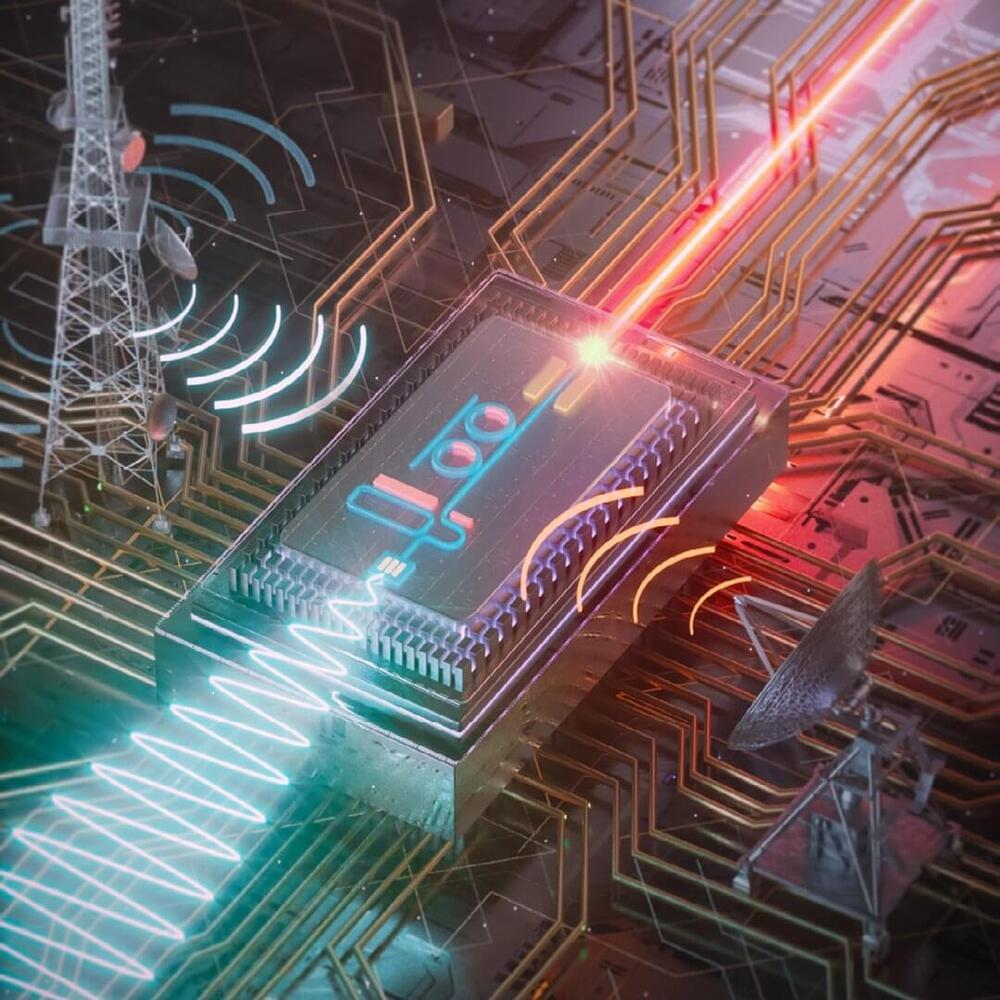A new Android malware named ‘Goldoson’ has infiltrated the platform’s official app store, Google Play, through 60 apps that collectively have 100 million downloads.


We flew out to Salt Lake City, Utah, to get an exclusive look at the company behind some of the most advanced implantable neurotechnologies, Blackrock Neurotech. Brain implants are here, and they’re becoming more and more advanced every day. The Utah Array and Neuroport system allows for high-quality data recording and stimulation. It has the most in-subject research hours of any brain-computer interface on the market and has been a part of the most advanced BCIs since 2004, inspiring hope in persons with movement disorders. We also saw their newly announced Neuralace interface debuted in November 2022. Learn what it takes to work at a company at the forefront of brain-computer interface development.
Thanks to Blackrock Neurotech for sponsoring this video. The opinions expressed in this video are that of The BCI Guys and should be taken as such.
Blackrock Neurotech’s Website: https://blackrockneurotech.com/
By the way, Blackrock Neurotech is not affiliated with the BlackRock financial firm — this is a frequent question.
——–ABOUT US:——-
Harrison and Colin (The BCI Guys) are neurotech researchers and science communicators dedicated to creating a brain-controlled future! Neurotechnology and brain-computer interfaces are devices that allow users to control machines with their thoughts and interact with technology in new ways. This revolutionary technology will change life as we know it and soon will be as common as the touchscreen on your smartphone. Join us in learning about the brain-controlled future!

The Spanish company Sateliot plans to send its first base station into orbit, which will enable satellite communications directly from smartphones. SpaceX will help it do so. A SpaceX rocket will naturally be used to launch the telecom satellite into orbit.
Here’s What We Know
The company from Spain wants to launch five satellites into orbit by the end of this year. According to representatives of the startup, this first phase of the project will be completed. Sateliot wants to have 64 satellites in orbit next year, and the company plans to increase the number to 256 in 2025.


Malicious loader programs capable of trojanizing Android applications are being traded on the criminal underground for up to $20,000 as a way to evade Google Play Store defenses.
“The most popular application categories to hide malware and unwanted software include cryptocurrency trackers, financial apps, QR-code scanners, and even dating apps,” Kaspersky said in a new report based on messages posted on online forums between 2019 and 2023.
Dropper apps are the primary means for threat actors looking to sneak malware via the Google Play Store. Such apps often masquerade as seemingly innocuous apps, with malicious updates introduced upon clearing the review process and the applications have amassed a significant user base.

Researchers have developed a new chip-sized microwave photonic filter to separate communication signals from noise and suppress unwanted interference across the full radio frequency spectrum. The device is expected to help next-generation wireless communication technologies efficiently convey data in an environment that is becoming crowded with signals from devices such as cell phones, self-driving vehicles, internet-connected appliances and smart city infrastructure.
“This new microwave filter chip has the potential to improve wireless communication, such as 6G, leading to faster internet connections, better overall communication experiences and lower costs and energy consumption for wireless communication systems,” said researcher Xingjun Wang from Peking University. “These advancements would directly and indirectly affect daily life, improving overall quality of life and enabling new experiences in various domains, such as mobility, smart homes and public spaces.”
In the Photonics Research journal, the researchers describe how their new photonic filter overcomes the limitations of traditional electronic devices to achieve multiple functionalities on a chip-sized device with low power consumption. They also demonstrate the filter’s ability to operate across a broad radio frequency spectrum extending to over 30 GHz, showing its suitability for envisioned 6G technology.

IN THE NEAR FUTURE, we should anticipate certain technological developments that will forever change our world. For instance, today’s text-based ChatGPT will evolve to give rise to personal “conversational AI” assistants installed in smart glasses and contact lenses that will gradually phase out smartphones. Technological advances in fields such as AI, AR/VR, bionics, and cybernetics, will eventually lead to “generative AI”-powered immersive neurotechnology that enables you to create virtual environments and holographic messages directly from your thoughts, with your imagination serving as the “prompt engineer.” What will happen when everyone constantly broadcasts their mind?
#SelfTranscendence #metaverse #ConversationalAI #GenerativeAI #ChatGPT #SimulationSingularity #SyntellectEmergence #GlobalMind #MindUploading #CyberneticImmortality #SimulatedMultiverse #TeleologicalEvolution #ExperientialRealism #ConsciousMind
Can the pursuit of experience lead to true enlightenment? Are we edging towards Experiential Nirvana on a civilizational level despite certain turbulent events?
After almost a decade, Google have finally managed to develop a file sharing function like Apple’s AirDrop. Called Nearby Share, here’s how your use it.
Whatever your opinion about which operating system is the best, iOS has had one major advantage over Android and Windows for some time, its AirDrop feature. In fact, for more than a decade, AirDrop has been a source of pride for Apple users and a cause of resentment for many who desire an easy way to share files between Windows and Android.
Pornpak Khunatorn/iStock.
Since this new Google app is still in beta testing, installation can be challenging. However, it does function well, so setting it up is worthwhile, but check a few things first.
Fascinating proposal for methodology.
Models are scientific models, theories, hypotheses, formulas, equations, naïve models based on personal experiences, superstitions (!), and traditional computer programs. In a Reductionist paradigm, these Models are created by humans, ostensibly by scientists, and are then used, ostensibly by engineers, to solve real-world problems. Model creation and Model use both require that these humans Understand the problem domain, the problem at hand, the previously known shared Models available, and how to design and use Models. A Ph.D. degree could be seen as a formal license to create new Models[2]. Mathematics can be seen as a discipline for Model manipulation.
But now — by avoiding the use of human made Models and switching to Holistic Methods — data scientists, programmers, and others do not themselves have to Understand the problems they are given. They are no longer asked to provide a computer program or to otherwise solve a problem in a traditional Reductionist or scientific way. Holistic Systems like DNNs can provide solutions to many problems by first learning about the domain from data and solved examples, and then, in production, to match new situations to this gathered experience. These matches are guesses, but with sufficient learning the results can be highly reliable.
We will initially use computer-based Holistic Methods to solve individual and specific problems, such as self-driving cars. Over time, increasing numbers of Artificial Understanders will be able to provide immediate answers — guesses — to wider and wider ranges of problems. We can expect to see cellphone apps with such good command of language that it feels like talking to a competent co-worker. Voice will become the preferred way to interact with our personal AIs.

Mixed reality (MR) and Augmented Reality (AR) technologies merge the real world with computer-generated elements, allowing users to interact with their surroundings in more engaging ways. In recent years, these technologies have enhanced education and specialized training in numerous fields, helping trainees to test their skills or make better sense of abstract concepts and data.
Researchers at University of Calgary have been trying to develop interfaces and systems that could enhanced MR visualizations. In a paper set to be presented at CHI 2023 LBW, they introduced HoloTouch, a system that can augment mixed reality graphics and charts using smartphones as physical proxies.
“To me, this paper was inspired for the most part by a work that I published during my final undergraduate year,” Neil Chulpongsatorn, one of the researchers who carried out the study, told Tech Xplore “They both originated from my interest in mixed reality interactions for data representations.”